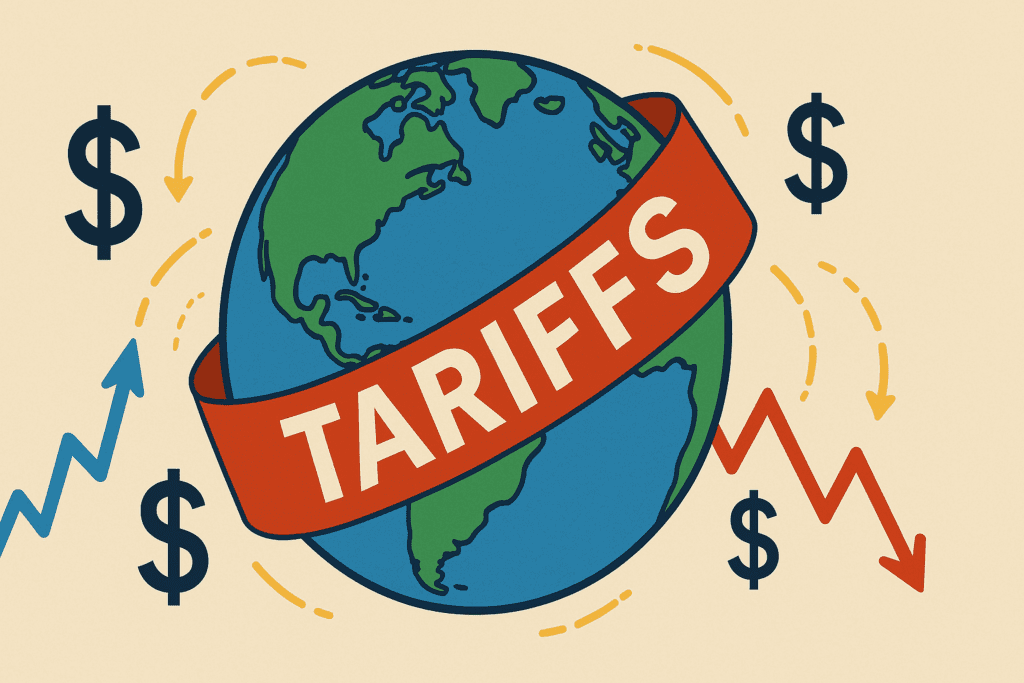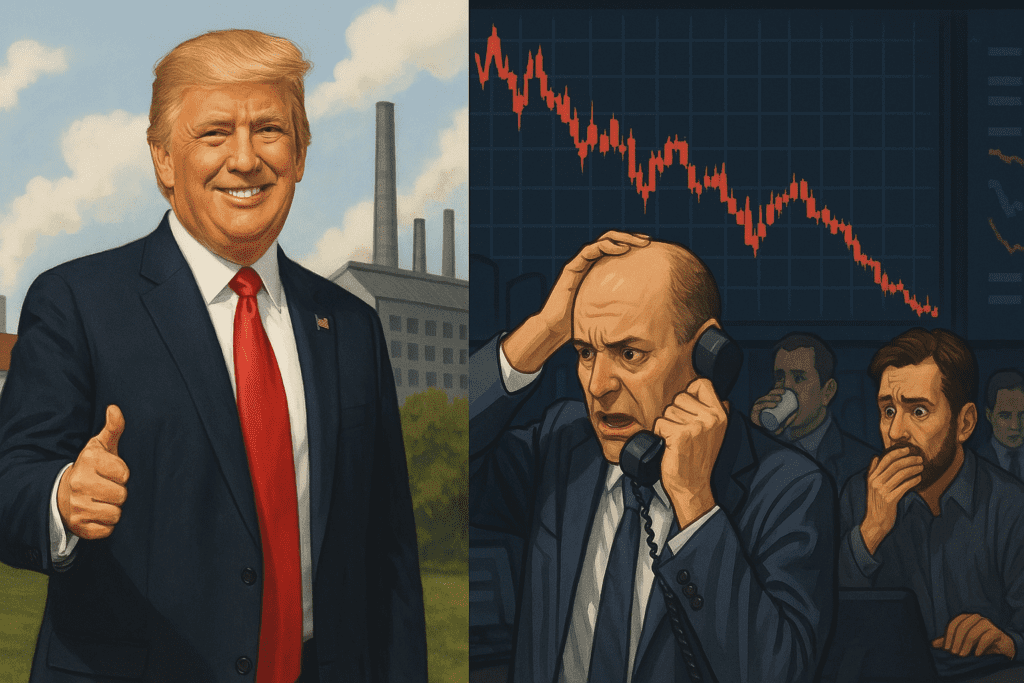By [Techmininghub], April 7, 2025
Former President Donald Trump has defended his sweeping new tariff plan, framing it as an essential corrective to decades of what he calls unfair exchange practices. The controversial statement—price lists on imports from almost every country in the international—has precipitated volatility in international markets and sparked backlash from worldwide leaders. But Trump stood by the organization: “Sometimes you need to take medicine to restore something,” he said for the duration of a press appearance at Mar-a-Lago.
The Tariff Plan
The proposed policy could implement a baseline 10% tariff on all goods coming into America, with higher charges for international locations deemed to be conducting “unfair” alternate practices. China, for instance, could face price lists as excessive as 60%, even as different countries, along with European allies, might see varying quotes relying on exchange records and deficits (Politico).

“This isn’t always about punishing other countries,” Trump insisted. “It’s about defending American jobs and balancing our trade deficit, which has been out of whack for years.” He likened the economic effect to medication: “It won’t taste proper now, but in the end, it’s what our economic system wishes.”
Market Reaction
Financial markets reacted sharply. On Wall Street, the S&P 500 fell almost 14% over numerous trading periods, while the Nasdaq dropped almost 19% 12 months-to-date. Global markets were observed to be in shape, with Germany’s DAX down 10% and Hong Kong’s Hang Seng Index posting steep losses (Business Insider).
In a press assertion, analysts at Goldman Sachs warned the price lists may want to “exacerbate inflationary pressures and cause retaliatory actions that sluggish global trade.”
International Response
The worldwide reaction became fast and excessive. China condemned the price lists as “financial intimidation” and hinted at retaliatory obligations on U.S. agricultural and tech imports. The European Union, known as the plan, is “deeply uncooperative” and commenced getting ready a response that could include counter-tariffs worth an envisioned $28 billion (Associated Press).
Australian Prime Minister Anthony Albanese criticized the choice, particularly due to the fact Australia imposes no tariffs on American imports. “This flow will damage global supply chains and harm normal Australians—especially retirees relying on their superannuation investments,” he said, noting that Australian markets additionally saw a drop following the assertion (News.Com.Au).
Political Ramifications
The flow comes as Trump positions himself as the leading Republican candidate within the 2024 election, leaning heavily into an “America First” change narrative. His campaign claims the tariffs will generate trillions in new sales and produce jobs returned to the U.S., even though economists continue to be skeptical.

Democratic leaders condemned the plan, with Senate Majority Leader Chuck Schumer calling it “reckless economic nationalism.” Even a few Republicans expressed challenges to approximately inflationary outcomes and disruption to small businesses dependent on international supply chains.
Looking Ahead
With the worldwide economy already navigating inflation, geopolitical tensions, and supply chain fragility, Trump’s competitive change stance introduces some other unpredictable detail. Economists warn that whilst a few domestic industries may benefit in the short term, full-size tariffs may ultimately increase costs for consumers and invite trade wars.
Despite the complaint, Trump stays unyielding. “This is the tough medicinal drug America wishes to get stronger,” he said. “And much like any remedy, it would sting—however, it really works.”
Sources:
Business Insider—Trump: ‘Sometimes You Have to Take Medicine’
Politico—Trump Compares Global Tariffs to Taking Medicine
Associated Press—Markets Sink as Trump’s Tariffs Roil Global Trading SystemNews.Com.Au—Albanese Criticizes Trump Tariffs



